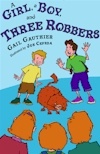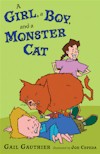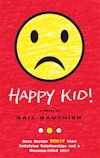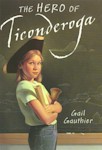Members of the blogosphere (at least the portion I inhabit) are wondering if blogging has had a negative impact on reviewing. This line of thought was inspired by an article in
n+1 called
The Blog Reflex, which was excerpted at a blog called
Jess. (Just out of curiousity, has anyone read the entire article?)
Anyway,
Fuse #8 saw the arguments made in
The Blog Reflex as being "a slightly rehashed version of the eternal Should a Blogger Post Negative Reviews question that keep popping up."
Read Roger's response was that kidlit bloggers have "created a community of interested parties heretofore unknown in the children's book world...But I'm not sure it has lead to better reviewing: can we truly "all be in this together" at the same time some of us are judging the work of others?"
Here is my spin, which I know everyone is desperate to hear: We should be keeping in mind that the Internet is a different medium. What is published here
is not supposed to be the same as what is published in traditional print media. Anyone who is posting "5,000-word critiques of their favorite books and records", as the original
n+1 article suggested, hasn't researched her market, as we say in writing. I hate to sound simplistic and simple, but material written for the Internet is supposed to be
short. Long stretches of unbroken text are deadly on the Internet.
Readers don't come to blogs to read the equivalent of one of those endless
New Yorker articles on say, the quality of literary critism. They come to blogs to learn that those endless
New Yorker articles exist and how to get to them should they wish to do so. Literary blogs, in particular, are a sort of directory of, a response to, a conversation about what is being written and read elsewhere and everywhere.
A metaphorical salon, perhaps.
Roger Sutton at
Read Roger said in one of his comments that blogging is an "undifferentiated mix of news, gossip, shoutouts, trivia--and reviews." I don't think he meant that to be insulting, and I don't think it is. That is the salon aspect of blogging. The blog is different from other forms of writing. Not better, not worse, different.
Will the "coziness" (again from Roger) of these salons and their blog reviews have some kind of impact on reviewing altogether? I'm not sure. I learned a great deal about writing from reading the
New York Times Book Review years ago and not because everything I read there was cozy and positive. Many of the reviews I read (I could get through) indicated a knowledge about writing and literature on the part of the reviewer that went beyond what he or she had to say about that particular book. Blog reviewers may very well have that same knowledge but when they only discuss what they like, they aren't necessarily getting an opportunity to share everything they know. If the coziness of blog reviewing makes the jump to traditional print reviews, I think something very well could be lost.
On the other hand, print reviewers seem to have such a bias against blog reviewers that it's hard to believe they'll be influenced by anything we're doing. In which case, we can all remain in our different worlds doing what we do...differently.
Labels: blogs, Reviewing







